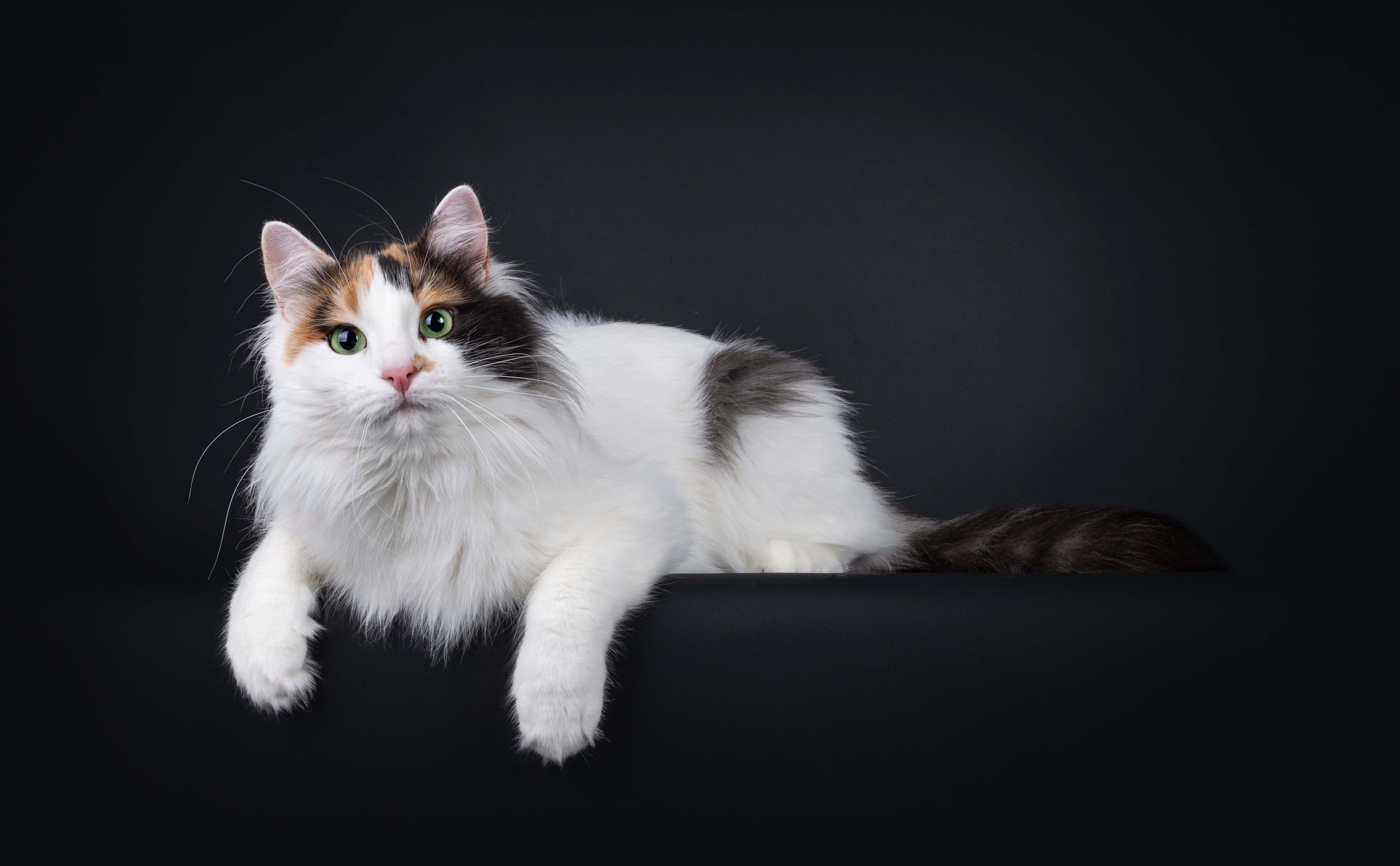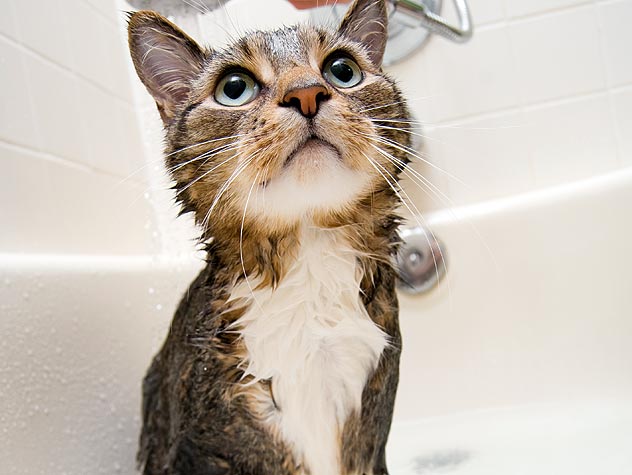Turkish Van
Originating from the rugged terrain of the Middle East, Turkish Van cats are showstoppers renowned for their distinctive appearance. They boast a pure-white body contrasted by vibrant markings on their head and tail. Their unique eye color is often a mix of blue and amber, and their semi-long coat is soft and silky. Another unique characteristic of the Turkish Van cat is that they take three to five years to reach their full size and maturity.
Breed characteristics carousel
Learn More
Need to Know
- Great for first-time cat owners
- Highly active and inquisitive cat
- Independent but friendly cat
- Slightly talkative cat
- Average build cat breed
- Requires frequent grooming
- Needs extensive outdoor space
- Not ideal for family homes
- Can be left alone all day
- Can cope with a busy household

Personality
Turkish Van cats are beautiful bundles of energy with a splash of personality. Known for their love of water and playful antics, these cats are anything but ordinary. They're intelligent, crave attention, and form incredibly strong bonds with their favorite people. They're always on the move, exploring their environment with fearless curiosity.
Originating from the harsh climate around Lake Van in Turkey, these clever cats developed a unique affinity for water, a trait believed to be an adaptation to the region’s extreme temperatures. The Turkish Van cat’s thick, water-resistant coat further supports this theory. While their exact origins remain unclear, with some claiming they swam ashore after the Great Flood, evidence suggests the breed's existence for thousands of years. They even adopted numerous names throughout the years, such as Eastern Cat, Turkish, Ringtail Cat, and Russian Longhair. Despite their ancient lineage, Turkish Vans remained relatively unknown to the Western world until the mid-20th century. Dedicated breeders brought them to the U.S. in the 1970s.
The ideal Turkish Van cat owner is someone who loves a splash of energy in their life—and who doesn't mind actual splashing, since these felines' favorite pastime is playing in water. Turkish Vans are intelligent and playful, and they aren’t shy about demanding your attention either. But while they enjoy affection, they're also independent spirits who appreciate their own space.
These happy-go-lucky cats are often described as being “dog-like” due to their playful personality and high energy. Like dogs, Turkish Van cats require mental and physical stimulation. They love to climb, jump, and explore, so owners should provide plenty of vertical space for them to conquer. Interactive toys and puzzles are also a must to keep them out of trouble and their minds sharp.
Outdoorsy by nature, Turkish Van cats love to explore and thrive with access to a safe and enclosed outdoor space. Although they love splashing around in water, they’re not fans of strong winds. They’ll appreciate having a wind-free shelter outside.
A coat as beautiful as a Turkish Van cat’s requires some upkeep. Their semi-long coat benefits from frequent brushing to avoid unwanted matting and tangles.
Turkish Van cats are considered one of the most intelligent cat breeds, making them highly trainable to learn tricks and commands. Short training sessions and positive reinforcement tend to work best.
The Turkish Van is a spirited and playful cat, but they do have a knack for swiping small toys, dunking them in water bowls, knocking over ornaments, and finding cozy spots in the highest places. These mischievous traits might make them a bit challenging for homes with very young kids, bustling lifestyles, or anyone with a fondness for delicate decorations and collectibles.
The cost of a Turkish Van from a breeder is significantly more than the cost of adopting one from a local shelter or rescue. The adoption fee usually covers additional items such as spaying or neutering, vaccines, and microchipping.

Learn more about feeding and caring for your Turkish Van on Purina.
Did You Know?
- Turkish Van cats are famously known as the "swimming cats" because they enjoy water and are often seen playing or even swimming in it.
- These cats have a unique coat pattern that’s quite rare and known as the "Van pattern," characterized by a white body with color on the head and tail.
- Turkish Van cats are one of the oldest cat breeds in the world and were historically considered sacred.


